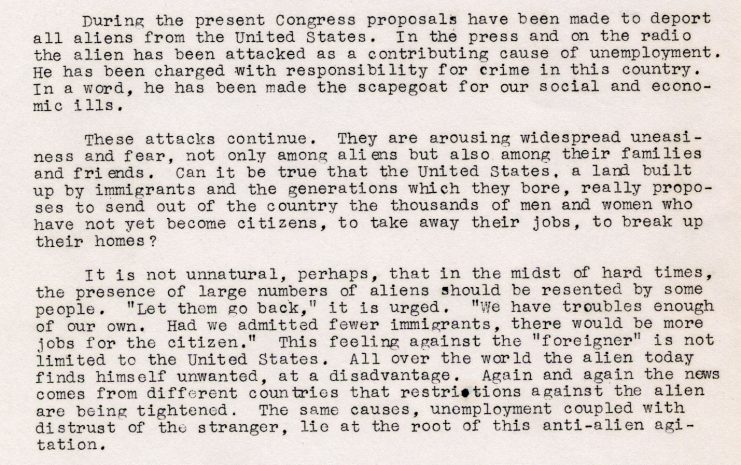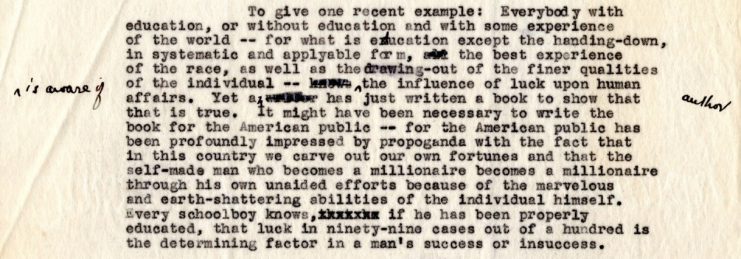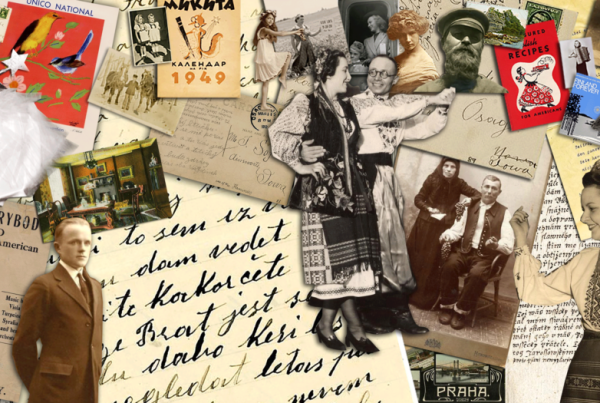By Kirsten Buvala
Project Manager, Immigration History Research Center Archives
 I have had the great fortune to be project manager for a digitization project here at the Immigration History Research Center Archives. Because this focuses on immigrant experiences in the early 20th century, I’ve had the opportunity to review autobiographies, articles, press releases, and more.
I have had the great fortune to be project manager for a digitization project here at the Immigration History Research Center Archives. Because this focuses on immigrant experiences in the early 20th century, I’ve had the opportunity to review autobiographies, articles, press releases, and more.
It probably comes as no great surprise that my thoughts occasionally connect to current events; immigration is a very prominent topic in political conversation today. I’ve discovered that this has long been the case, and that some conversations are particularly resonant with those of today. Take for example this 1936 press release from the Foreign Language Information Service, a social services agency:

Page beginning “Shall I Become a Citizen?” first article in series, 1936, box 20, folder 7, Immigration and Refugee Services of America records, IHRC1013, Immigration History Research Center Archives, University of Minnesota Libraries.
Today’s reader might read this press release and think it could have been written today, don’t you agree? I certainly thought so. After realizing this, I developed a research question and set off in search of support for a hypothesis: that immigrant recollections are more likely to record observations of their new homeland, because of their outsider perspective. Even today, if you go somewhere new you usually remark on the different and the notable.
Sometimes this perspective is critical, as I read this in the following letter, written by first generation Italian-American Robert Ferrari in 1929, in which he describes American propensity to excessively honor successful self-made individuals.

*Robert Ferrari to Sir,” 19 September 1929, box 1, folder “General, 1922-26, 29,” Robert Ferrari papers, IHRCA 653, Immigration History Research Center Archives, University of Minnesota Libraries.
Summarizing an American viewpoint critically/sarcastically while calling Americans “we” is a fascinating practice I look forward to finding more examples of among our records.
Primary sources such as these often offer an opinionated view – uncensored thoughts like the correspondence, or a mission-driven statement like the press release. The press release goes on to argue the importance of immigrant populations, and speculates on the unlikelihood of anti-immigrant beliefs making their way into highly influential political decisions.
In primary source research, every perspective is important, as they document the ever complex and varied reality of lives, whether historical or contemporary. Though immigrant stories may be sometimes overlooked by archives or researchers, we actively collect the voices and experiences of immigrants and newcomers, and share them with anyone interested. What questions do you have that our historical records could answer for you? Come and see, and happy researching!



